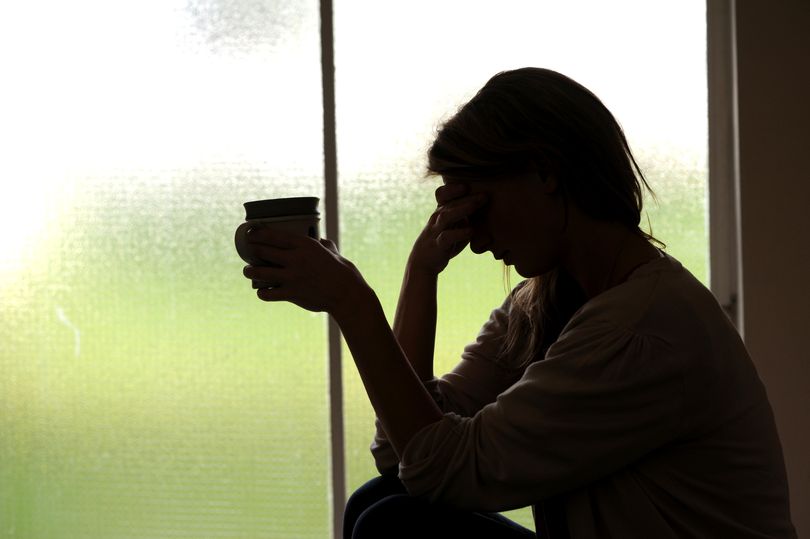
A teacher says she was left with two black eyes after being punched in the face by a three-year-old child. The teacher, who did not want to be identified for fear of reprisals, works with the youngest children in a mainstream church school in Wales.
Describing how behaviour has got worse, even among children in the very early years of school, the teacher said she has been bitten and frequently has to restrain children to prevent them from harming each other. She said her school’s leadership team acknowledges the behaviour problem, but the lack of resources and support means “little to no help is available”. Read the biggest stories in Wales first by signing up to our daily newsletter here.
Her experience is among testimony from teachers asked by WalesOnline for their experiences in the face of warnings from unions, schools and school leaders that there is a rising problem of bad behaviour, verbal and physical violence in schools. After the shocking case of a 14-year-old found guilty of attempted murder after stabbing teachers at Ysgol Dyffryn Aman in Ammanford, Wales’ education minister Lynne Neagle announced a “behaviour summit” earlier this month.
ADVERTISEMENT
READ MORE: Teacher who was headbutted by pupil banned from the classroom after he pushed him into a wall
READ MORE: Swansea University opening branches in London and other English cities
But the issue is something the teachers’ union Nasuwt and other unions have long warned about. Members of that union have taken strike action in schools where they say there was no effective behaviour policy and further action is now on the cards.
As schools and Welsh Government grapple with the issues WalesOnline approached teachers through the Nasuwt union. None wanted to be identified or to single out their schools, saying it is a universal problem.
They said schools across Wales are dealing with a mounting problem of violent and aggressive pupil behaviour in primaries and secondaries. They believe that behaviour is made worse by social problems, social media and failure to address aggression with adequate sanctions.
ADVERTISEMENT
This is having a negative effect on staff and other pupils and their learning, teachers warned. One headteacher said that a lack of support means children who should be in specialist provision end up in mainstream schools where the problems get even worse.
Some are thinking of leaving the profession because behaviour has got so bad. Others feel that some school leaders won’t deal with the problem because they are under pressure to cut absence and exclusion rates.
One male secondary school teacher said he “almost never felt safe” at work. He described how colleagues had been stabbed, kicked and punched “as the norm”.
The teacher, who we are not identifying, said: “I feel anxious and the night before work I don’t sleep as the environment is completely unpredictable and volatile. I almost never feel safe as I’m fully aware of constant physical and verbal abuse which is almost always unsupported by management unless I get a union involved – colleagues have been punched kicked, even stabbed, and it is treated as the norm.”
Another male teacher, with 15 years experience, said: “The instances of poor pupil behaviour my colleagues and I are seeing are more frequent and serious in nature than at any time in my 15 years as a teacher. We need Welsh Government to take the lead on this issue and prioritise it so my colleagues and I can feel safe and cared for in a job we love.”
ADVERTISEMENT
As well as the early years teacher left with two black eyes, another who works with the youngest children said they are abused every day: “The behaviour is getting worse every year. Going into work daily to be verbally and physically abused isn’t what I call teaching and this also has an impact on the learners and how it affects them when they see the trusted adults being hurt on a daily basis.”
Even non-teaching staff are affected. One mainstream high school administration worker described pupils swearing and lack of respect. They said complaints from school went largely ignored by the children’s families: “Language used, horrific to each other and speaking to staff. School is irrelevant to most just a place they have to be every day they see no purpose.”
And the headteacher of a specialist provision said there were serious problems with finding provision for some of the most challenging children. This was impacting everyone’s education and work.
They said: “There is a provision gap in secondary schools for pupils who are dysregulated as a result of their needs (such as trauma, attachment and adverse childhood experiences) not being met. If there was a provision for these ‘disruptive’ pupils outside of nurture there would be much less a burden on the core staff of secondary schools and there needs to be funding for this.
“The waiting lists for specialist provision is crazy and the pupils with these needs are just filtering down into secondary schools. So these pupils with certain needs are going to misbehave because they cannot access anything or haven’t got a suitable provision.
ADVERTISEMENT
“As a result behaviour is just getting worse and will continue to decline unless something is done. This just makes behaviour a rotating door that keeps happening.
“Staff are just putting out fires rather than more strategic people dealing with the heart of the issue.” Jane Morris, Director of Governors Cymru Services, which offers support and guidance to governors, said governors are aware of, and report, rising instances of bad behaviour.
She said: “There are increasing concerns regarding behaviour in schools across Wales. Where this results in an exclusion, governing bodies will be required to review if the headteacher has taken the right approach.
“This is not an easy task as there can be significant complexities involved. That’s why it’s imperative that governors ensure their schools have robust behaviour policies that clearly set out roles and responsibilities, and that they regularly review those policies to ensure they are fit for purpose, as well as having the right support and high quality training in place.”
Responding to the comments, Nasuwt national executive member for Wales, Sharron Daly, said most Nasuwt disputes with employers now involve behaviour. There has been a spike in exclusions for bad behaviour, more than six in 10 of the union’s members report being verbally abused by pupils and 18% physically assaulted.
She welcomed the Welsh Government’s planned behaviour summit saying it is something the Nasuwt has been long calling for. Ms Daly said those in charge must acknowledge bad behaviour impacts learning for all and that some pupils cannot have their needs catered for in mainstream schools.
“All teachers deserve to work in a safe environment where abuse is not tolerated and there are no excuses,” Ms Daly added. “A behaviour summit will bring the opportunity to share good practice and to ensure that across Wales we have a zero toleration for abuse in our schools.
“We have already taken strike action at comprehensive schools in RCT, Torfaen, the Vale of Glamorgan, Caerphilly, and Monmouthshire over Learner Behaviour and have demonstrated at the Senedd to remind Welsh Government that they are responsible for education in Wales and that the issue of Learner Behaviour must be their priority.”
The Nasuwt is currently in negotiations with three other secondary schools in South Wales, which could lead to further strike action over behaviour not being dealt with, she said. Earlier this month Education Minister Lynne Neagle announced the behaviour summit to be held in May.
Responding to calls for security guards or police in schools after the Ammanford stabbing Ms Neagle said schools should not become fortresses. The minister said schools are being affected by wider social issues causing behaviour and absence problems in schools.
Pressures include rising numbers of young people with mental health issues, additional learning needs and problems regulating their emotions. The minister said her responses will be based on findings from the summit in May, which unions, school staff, and police can attend.
She will also look at impending research from Bangor University on reasons for bad behaviour in school. The Welsh Government also plans its own findings from talking to young people about their reasons for not attending school, she said.
“Behaviour in schools has been a serious concern for me and I have been hearing about behaviour challenges,” the minister told WalesOnline earlier this month. “Schools need to be safe welcoming places for young people to learn.”
A teenage girl who stabbed two teachers and a pupil at Ysgol Dyffryn Aman with her father’s multi-tool was found guilty of attempted murder at a trial earlier this month. The pupil at the school had admitted three counts of inflicting grievous harm with intent but denied attempted murder.
EMEA Tribune is not involved in this news article, it is taken from our partners and or from the News Agencies. Copyright and Credit go to the News Agencies, email news@emeatribune.com Follow our WhatsApp verified Channel




